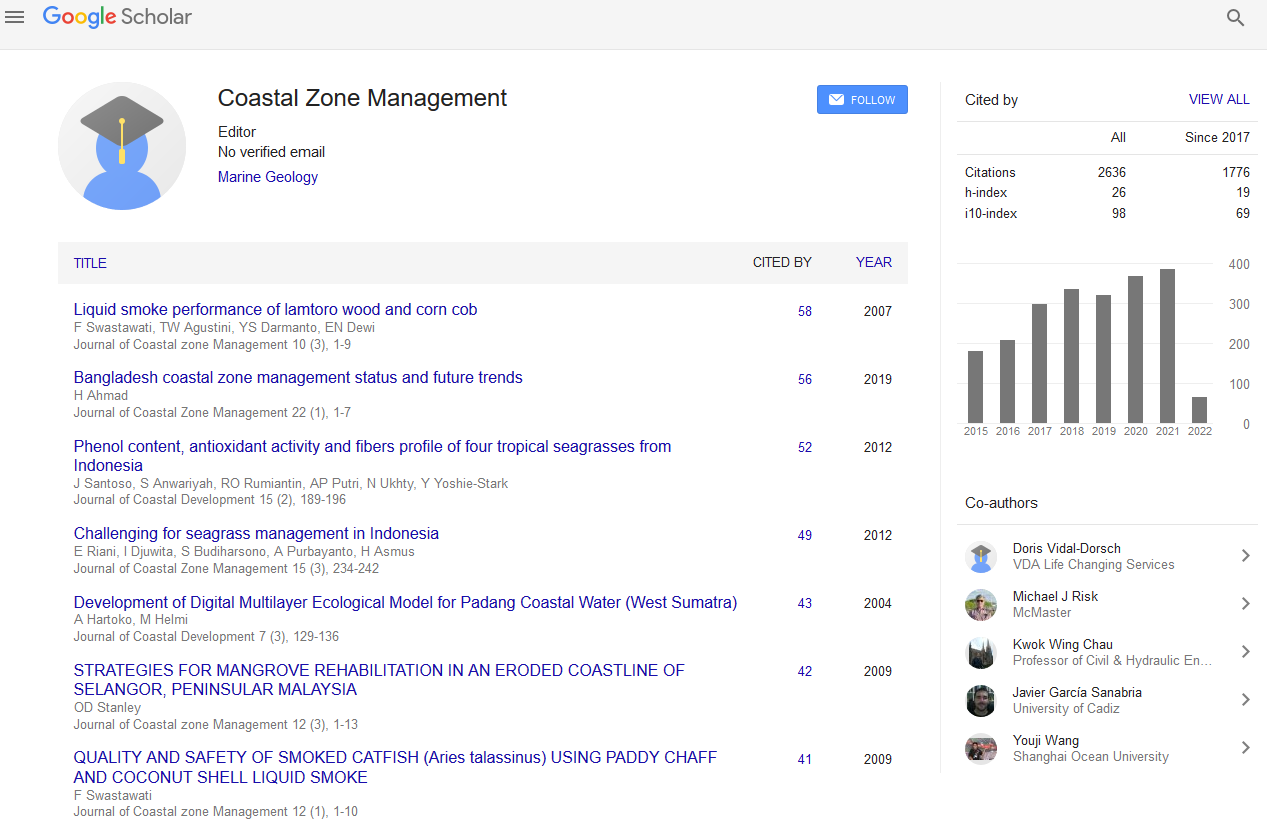Indexed In
- SafetyLit
- RefSeek
- Hamdard University
- EBSCO A-Z
- OCLC- WorldCat
- Publons
Useful Links
Share This Page
Journal Flyer

Open Access Journals
- Agri and Aquaculture
- Biochemistry
- Bioinformatics & Systems Biology
- Business & Management
- Chemistry
- Clinical Sciences
- Engineering
- Food & Nutrition
- General Science
- Genetics & Molecular Biology
- Immunology & Microbiology
- Medical Sciences
- Neuroscience & Psychology
- Nursing & Health Care
- Pharmaceutical Sciences
Abstract
Chemical Ecology of Marine Cyanobacterial Secondary Metabolites: A Mini-Review
Lik Tong Tan and Beverly Pi Lee Goh
cyanobacteria. A majority of these compounds are of the polypeptide or mixed polyketide-polypeptide
structural class and they are a potential source of novel pharmaceuticals. In spite of the chemical richness
of marine cyanobacteria, not much is known regarding their ecological functions. To date only a handful of
marine cyanobacterial compounds have been examined for their involvement in predator-prey interactions.
This mini-review surveys the various chemical ecology studies conducted on marine cyanobacterial
compounds. From these ecological studies, many marine cyanobacterial compounds are known to deter
feeding by several species of marine predators. Such chemical defense may be crucial in maintaining the
population of marine cyanobacterial bloom in nature. In addition, a series of ecological studies from our
laboratory revealed the anti-settlement properties of a number of benthic marine cyanobacterial
compounds. These studies suggested marine cyanobacteria as a potential source of natural antifoulants for
the control of fouling organisms.

